The weeds are coming for you.
You spray them, curse them, yank them from the ground by their very roots.
Still, they torment you.
“WHY CAN’T I KILL LAWN WEEDS?! WHYYYYYYYY???!”
We don’t blame you for being dramatic. But it’s not your imagination — there are a lot of reasons why those pesky weeds are winning.
Let’s take a look.
1. You’re Using the Wrong DIY Products to Kill Lawn Weeds
Not every weed-killing product kills all weeds. That would be waaaaaaay too easy.
And some weeds are so tough, they just laugh at those DIY products you can buy at the store.
For Creeping Charlie, a tenacious perennial, we use a professional-grade, specialty weed killer multiple times throughout the year to combat it. Your typical home improvement store weed control won’t do the job.
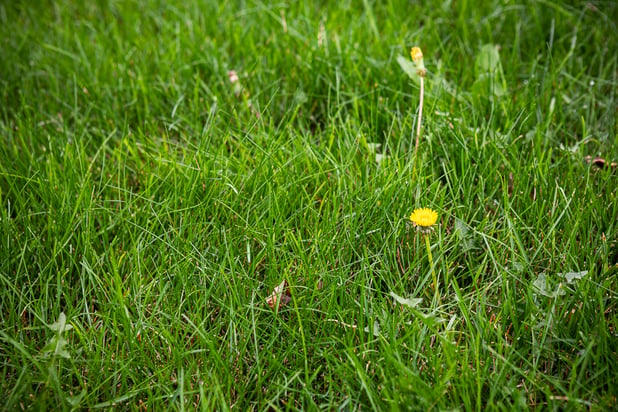
We target dandelions with a specialty “weed shield” designed to reduce the number of dandelions that emerge.
Again, you can’t just grab a bottle from the store shelf and expect it to work as well.
Takeaway Tip: Let the pros tackle your lawn’s toughest weeds with products more effective than your DIY bottle.
2. Your Lawn Care Company Isn’t Using the Best Products Available to Kill Lawn Weeds
All lawn care products are not the same.
Conscientious professionals follow the latest research and trends and know which products actually kill lawn weeds.
It often means spending more money for an improved product vs. the 20-year old standby that competitors and DIY lawn care programs utilize to keep costs down.
Takeaway Tip: Do your research when hiring a lawn care service. Ask for examples of how they go above and beyond their competitors, including using the best products on the market.
3. Your Lawn Isn't Thick Enough, So Weeds Keep Coming Back
You may have heard us say this before, but it’s worth repeating: weeds hate healthy lawns.
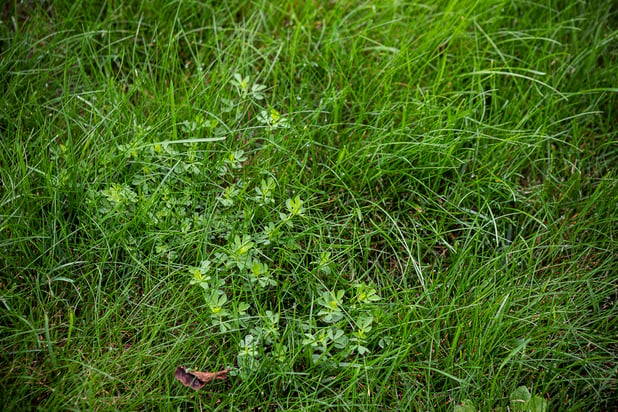 A thick, healthy lawn will crowd out weeds, making it tough for them to take hold.
A thick, healthy lawn will crowd out weeds, making it tough for them to take hold.
Takeaway Tips:
Mow High
Taller grass helps a lawn grow thicker. Mow too short, and the soil heats up, helping those pesky weed seeds to germinate.
Water Wisely
A lawn that’s too wet or too dry encourages weeds.
Have a Proactive Lawn Care Plan
Choose a complete, proactive lawn care program that includes both preventative and curative treatments to kill lawn weeds.
Hire a Great Lawn Care Company
Use an experienced lawn care company you can trust to show up and deliver great results. The best lawn care companies have a detailed plan in place to kill lawn weeds.
4. You’re Not Treating Weeds Preventatively
In some cases, prevention is everything.
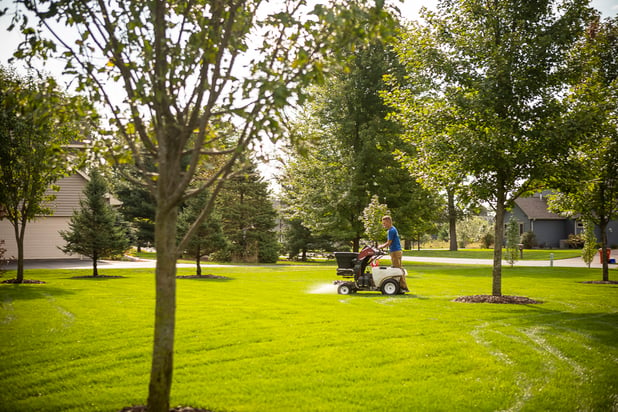 For crabgrass, pre-emergent treatment is crucial — targeting those seeds as they germinate and take root in the soil so they don’t become more seed-producing plants.
For crabgrass, pre-emergent treatment is crucial — targeting those seeds as they germinate and take root in the soil so they don’t become more seed-producing plants.
If you wait until crabgrass shows up, you’ll have a much tougher time getting rid of it.
Takeaway Tip: Don’t skip the pre-emergent. While most lawn care companies do one crabgrass application in the spring, here at RainMaster, we do two, one in early spring and another in late spring. This extends protection.
5. You’re Dealing with a Selective Control Problem
“Selective” weed control products kill lawn weeds without harming the grass or other plants around them.
That sounds great, right?
The problem is, not every weed has a selective control product designed for it.
That means you’ll have to use a non-selective product, like Roundup, which will also kill areas of the surrounding lawn, leaving big brown spots.
Takeaway Tip: While many homeowners cringe at killing portions of lawn in order to kill lawn weeds, those patches of lawn can be reseeded and will bounce back.
6. Your Lawn Soil pH is Off, So It Encourages Weeds
We’ll assume you don’t lie awake nights worrying about your soil pH.
But it really is important.
Why does it matter? Important nutrients for plants tend to be available in soil when the pH is at the correct level. If your pH is off, your grass won’t get the nutrients it needs, even if you fertilize regularly.
That makes it more vulnerable to weeds.
Takeaway Tip: Have your soil’s pH level tested. If it’s out of whack, we can add the right soil amendments to bring it to the right level.
7. You Have Too Much Shade
On a hot summer afternoon when you’re in a book and hammock kind of mood, a shady backyard is perfect.
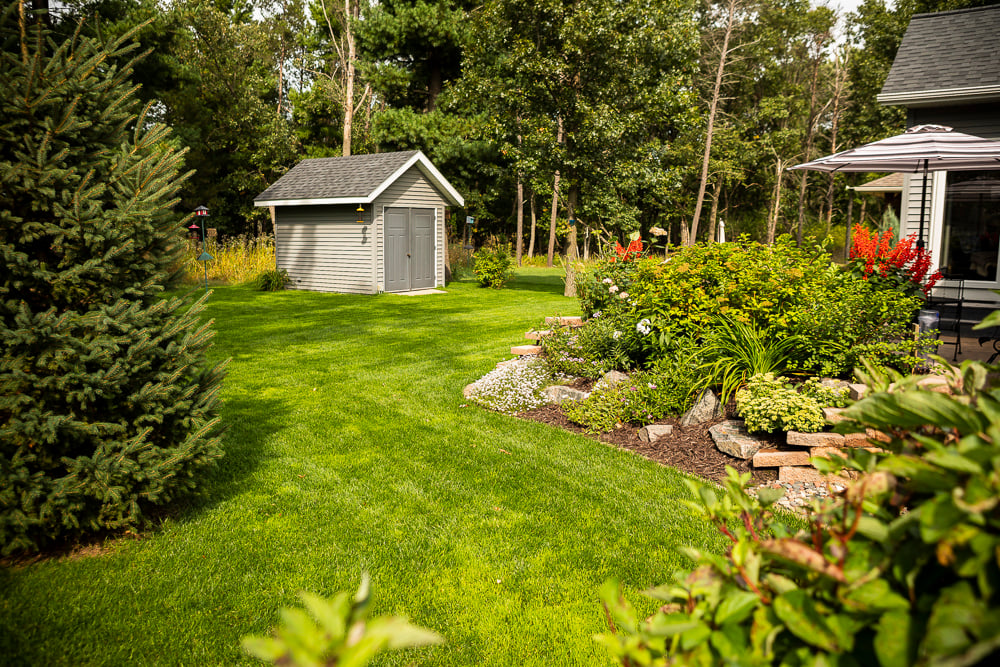 Some weeds think so, too.
Some weeds think so, too.
Grass loves sun, so if your yard is too shady, grass struggles to grow nice and thick, which means shade-tolerant weeds take hold.
Takeaway Tips:
- Increase the amount of sunlight reaching your lawn by selectively pruning your shade trees. The lower branches and some of the inner branches can be removed to allow more light to reach the lawn below.
- Try a more shade-tolerant variety of grass.
- Convert your grassy areas to gardens of shade-loving plants.
8. Sometimes It Takes Constant, Ongoing Treatment to Kill Lawn Weeds
Weed control isn’t a one-time thing. It’s a continuous process.
Some weeds are really, really stubborn, like crabgrass, which produces as many as 150,000 seeds. Then those seeds stay behind, ready to germinate the following spring and start the evil cycle all over again.
Then there’s Canada thistle. Mature thistle plants have tough root systems that can extend for 10 feet. Ten feet!
Creeping Charlie will reproduce from its seeds but it also spreads rapidly by growing more roots along its stems.
When necessary, we tackle it with a specialty liquid weed control with multiple applications throughout the year.
Don’t get us started on Yellow Nutsedge. (Oops, too late.)
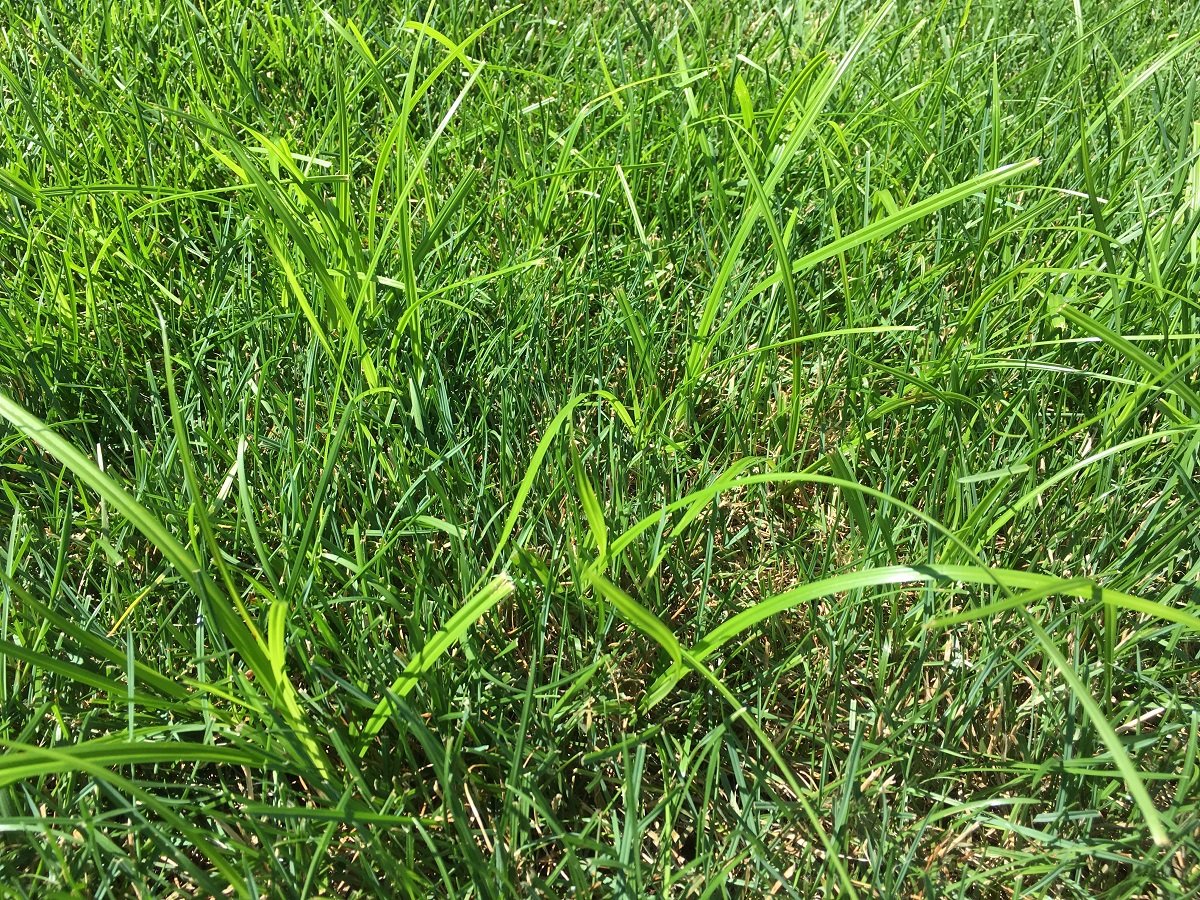 This dastardly weed can produce thousands of little underground tubers called “nutlets” each year, which can each eventually produce nutsedge patches several feet wide.
This dastardly weed can produce thousands of little underground tubers called “nutlets” each year, which can each eventually produce nutsedge patches several feet wide.
These nutlets can survive deep in your soil for up to 10 years before emerging to produce new nutsedge plants.
It grows fast. Pre-emergent doesn’t stop it. There are ways to control it, but you can’t totally eliminate it.
We use a specific product to suppress nutsedge, and we include this treatment as needed (one or two times a season) in our lawn care programs at no extra charge.
Takeaway Tip: Patience, please. The toughest weeds take time to banish, and several treatments, even spanning a year or more.
9. Your Lawn is Under-Nourished
If your lawn is undernourished, it’s practically a welcome mat for weeds.
Clover really thrives in lawns that are undernourished. A healthy, well-fed lawn means fewer clover.
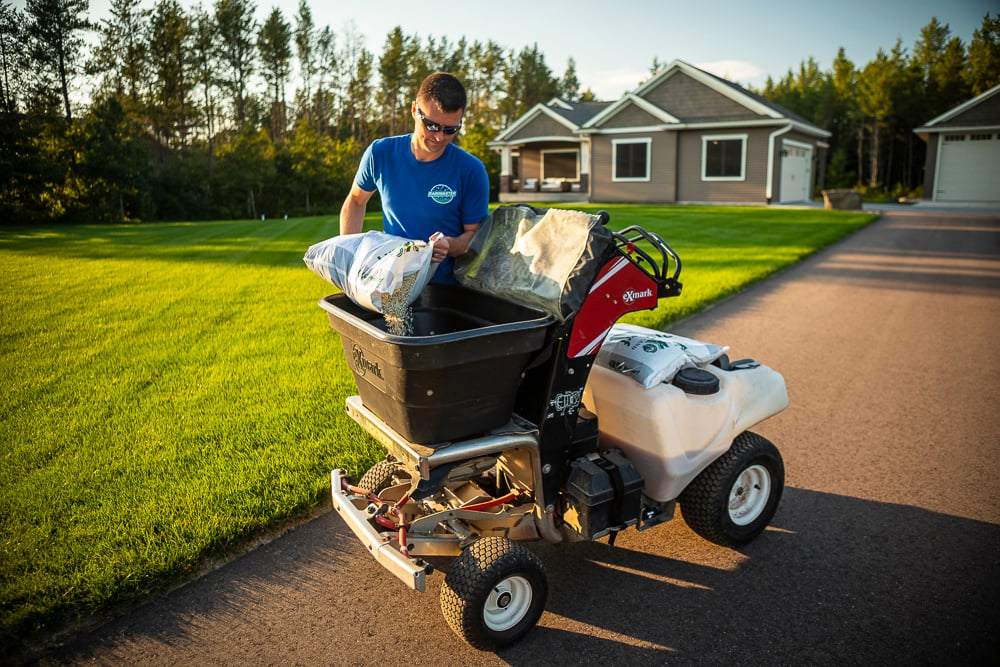 Broadleaf plantain, an aggressive, stubborn perennial weed, also thrives in thin, neglected lawns that have compacted soil.
Broadleaf plantain, an aggressive, stubborn perennial weed, also thrives in thin, neglected lawns that have compacted soil.
Takeaway Tip: Don’t skimp on the fertilizer.
RainMaster uses granular fertilizer, which is more expensive and effective than liquid counterparts some of our competitors use.
Our granular fertilizer breaks down slowly, giving you consistent benefits from fertilization.
Ready to Kill Lawn Weeds? Trust RainMaster
You have better things to do than spend your weekends battling weeds.
Consider it a team effort. Let’s create a custom nutrition plan for your lawn, so the roots will be nourished, the soil packed with nutrients, and your grass so thick and healthy, lawn weeds will have a tough fight ahead.
But when they do show up, let's be ready for them.
Are you ready to stop battling weeds at your lawn in Eau Claire, WI or the Minneapolis area? Request a quote today! We’ll review your options together so you can make a great choice. Then, you can finally enjoy your lawn and stop worrying about it.


